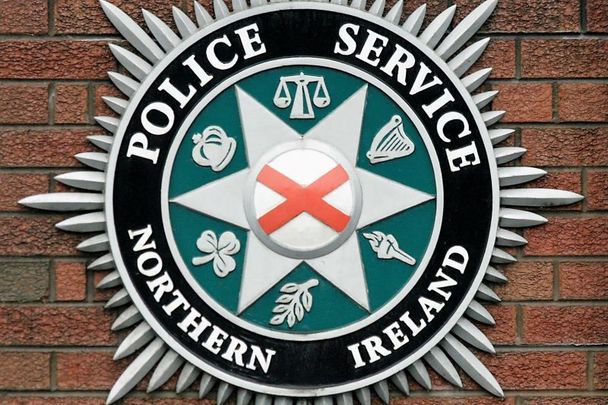Northern Ireland's Public Prosecution Service (PPS) issued decisions in relation to seven former soldiers reported in connection with six incidents, including two deaths, involving Military Reaction Force (MRF) activity over 50 years ago.
The PPS said today, February 8, that a team of senior prosecutors has completed a careful examination of all the available evidence submitted in two files by the Police Service of Northern Ireland’s Legacy Investigation Branch (LIB). These files relate to the activity of a temporary Army unit operating in Belfast in 1972 known as the MRF.
In relation to the first file, on which five soldiers were reported, decisions have been taken to prosecute one former soldier, known as Soldier F, for the murder of 44-year-old Patrick McVeigh who was shot at the junction of Finaghy Road North and Riverdale Park South on 13th May 1972.
The PPS has decided to further prosecute Soldier F for the attempted murder of four other victims wounded in this same incident.
Soldier F, as well as three other former soldiers - known as Soldiers B, C, and D - will also be prosecuted for the attempted murder of two victims during a shooting incident in Slievegallion Drive on May 12, 1972.
The PPS noted that the individuals referred to above as Soldier F, Soldier A, and Soldier C are not the same individuals involved in any previous or ongoing prosecution relating to events in Northern Ireland in 1972.
As criminal proceedings will commence against four soldiers in due course there should be no reporting, commentary or sharing of information which could in any way prejudice these proceedings.
— Public Prosecution Service (@thePPSNI) February 8, 2024
The PPS further announced on Thursday its decision not to prosecute the one surviving suspect in relation to a shooting incident at Silvio Street on May 26, 1972, after which no injuries were reported.
It will also not prosecute the one surviving suspect in relation to an incident at the Glen Road Bus Terminus on June 22, 1972, in which four victims suffered gunshot wounds.
The PPS said on Thursday that the LIB also investigated a shooting on the Glen Road on May 6, 1972, in which one victim suffered a gunshot wound. However, no decision was issued in that case as all of the suspects are deceased.
The second file submitted by the LIB related to an incident in which 18-year-old Daniel Rooney was shot dead at St James’ Road on September 26, 1972, and a second man suffered a gunshot wound. This incident involved a separate MRF unit from that referred to above. Police reported two former soldiers, known as Soldiers A and C, for consideration on this file. Both were considered for the potential charge of murder and attempted murder.
After a thorough consideration of all evidence in this file, it was concluded that there was insufficient evidence to prosecute any individual for any offence. The reasons for the decision in this case included difficulties with the admissibility of accounts obtained from the soldiers in 1972 and the inability of a series of recent forensic examinations to provide evidence capable of resolving significant conflicts within the evidence.
PPS Assistant Director Martin Hardy said all victims and families involved in the above investigations were informed of these decisions today.
“Regardless of the differing outcomes in relation to each incident examined, we in the PPS recognise that this is a painful day for all victims and families involved and that they have waited a long time to reach this stage of the process," Hardy said.
“Where a decision to prosecute has been taken, I would emphasise that criminal proceedings will commence in due course and there should be no reporting, commentary or sharing of information which could in any way prejudice these proceedings. We will keep in touch with the relevant victims and families as these cases progress.
“Where a decision not to prosecute has been taken, I can assure victims and families involved that the prosecution team, which included an independent senior barrister, considered the available evidence thoroughly, independently and impartially.
“A prosecution can only be brought when the evidence presents a reasonable prospect of conviction at court for any reported individual. Each case is considered in light of its own individual facts and circumstances. In these decisions not to prosecute, the admissibility, availability and sufficiency of evidence were key factors in reaching a conclusion that the Test for Prosecution was not met.”
Hardy said victims and families who were today notified of a decision not to prosecute had received a detailed written explanation of the reasons, along with an offer to meet with the prosecution team.
Patrick McVeigh's daughter Pat, who has been fighting to prove her father's innocence, told RTE News on Thursday that it was an emotional day for her family.
"The fact that there was a slur on my father's name, that he was supposed to be a gunman," Pat said on Thursday.
"My father was not a gunman and that was what I wanted to prove, that he was an innocent civilian on his way home.
"And he was shot dead by a rogue unit of the British army."
Relatives for Justice said on Thursday that the PPS decisions are a "significant development."
"Following decades of denial and delay these families have been vindicated," the group said on X.
"However the heinous and cruel Legacy Act will undermine that vindication - Our thoughts are with the survivors and the bereaved families today."
A significant development. Following decades of denial and delay these families have been vindicated. However the heinous and cruel Legacy Act will undermine that vindication - Our thoughts are with the survivors and the bereaved families today https://t.co/T6MSaGGqRd
— Relatives 4 Justice #NeverGivingUp (@RelsForJustice) February 8, 2024




Comments